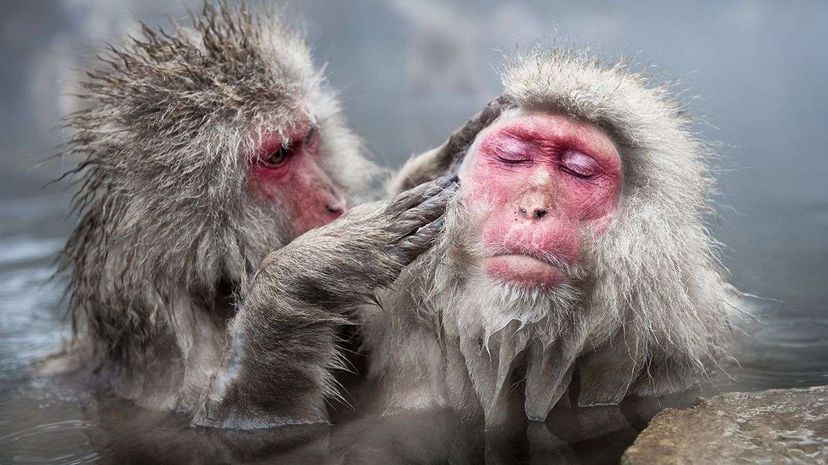
You know how sometimes it's hard to tell whether somebody is actually gorgeous and dynamic, or just really well-groomed? Well, maybe the two things are related — if you're a macaque, anyway.
During the seasons they're not mating or having babies, female Japanese macaques (Macaca fuscata fuscata) spend a lot of time sitting around grooming one another — combing through each other's fur and picking out lice eggs. Because lice are parasites transmitted through physical contact, researchers have wondered whether the macaque's prolonged grooming sessions are actually effective in combating the parasite, or whether they just exacerbate the problem. According to a recent paper in the journal Scientific Reports, the most socially gregarious macaques tended to have the least amount of lice, even though they also have the most infestation-promoting physical contact with their friends.
Advertisement
The research team pored over 142 days' worth of video footage of female Japanese macaques — also known as snow monkeys — grooming one another, and modeled the primates' social network to figure out who was getting the most grooming action from the most different girlfriends. They found the most popular, or "central," females had a lower lice load than ones who weren't as social.
Which means all those hours of nitpicking really pay off!
However, this isn't the case for all parasites, says author Andrew MacIntosh, a researcher at Kyoto University's Primate Research Institute. "The link between sociality and parasitism is not always straightforward. Increased centrality in social networks is often linked to increased parasite load and disease risk," he says in a press release.
For instance, despite the fact that external parasites like lice may be less frequent among the more popular monkeys, he found in a previous study that the most social individuals often have more intestinal parasites.
Advertisement